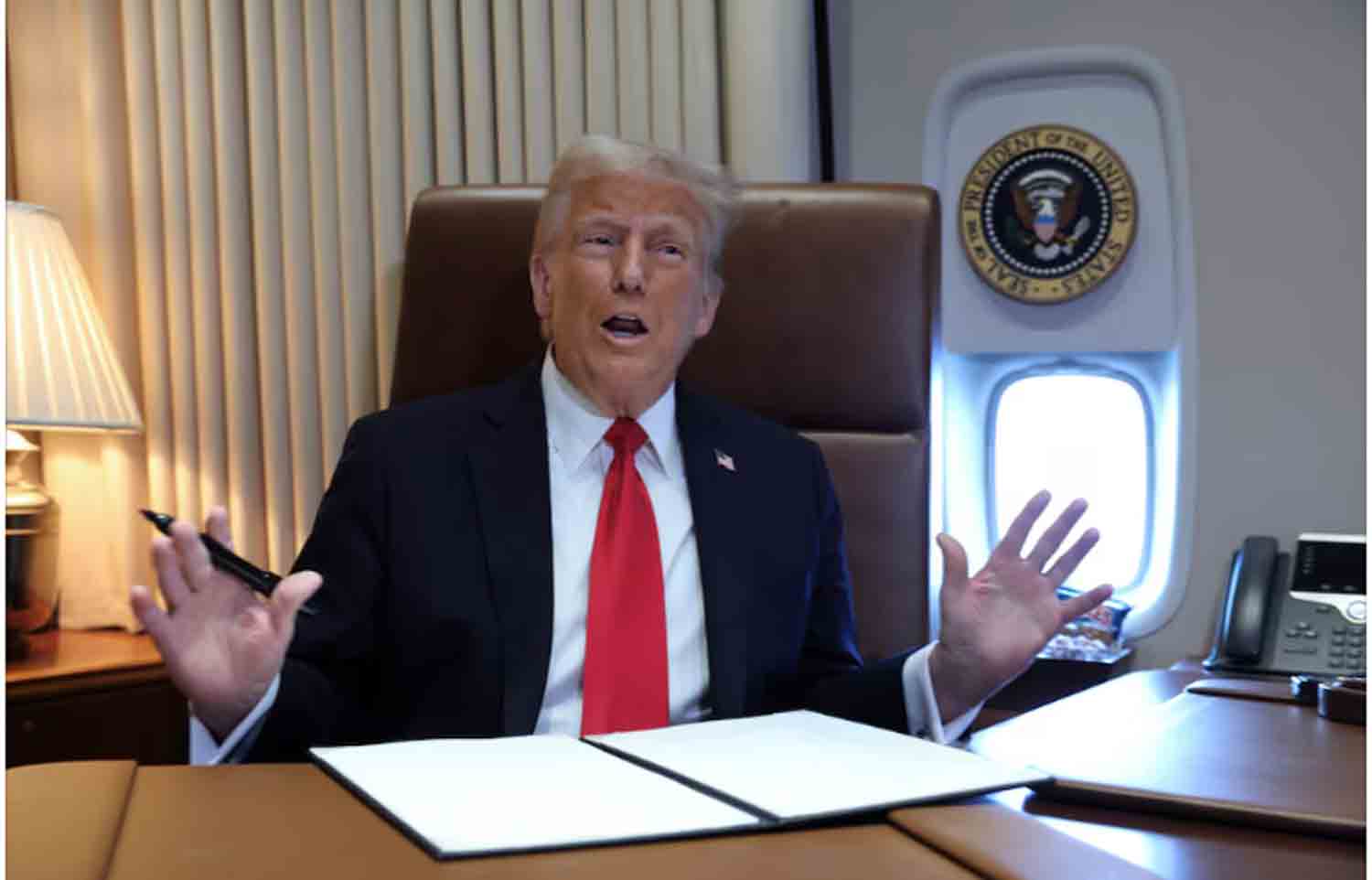U.S. President Donald Trump announced on Sunday his intention to implement new tariffs of 25% on all steel and aluminum imports into the United States, in addition to the existing duties on metals, marking a significant escalation in his trade policy reforms.
While en route to the NFL Super Bowl in New Orleans, Trump addressed reporters aboard Air Force One, stating that he would unveil the new tariffs on metals on Monday. He also indicated that reciprocal tariffs would be announced on Tuesday or Wednesday, set to take effect almost immediately, applying to all nations and mirroring the tariff rates imposed by each country.
“It’s straightforward: if they impose charges on us, we will impose charges on them,” Trump explained regarding the reciprocal tariff strategy. According to data from the government and the American Iron and Steel Institute, Canada, Brazil, and Mexico are the largest sources of steel imports to the U.S., followed by South Korea and Vietnam. Canada, rich in hydropower, is the predominant supplier of primary aluminum to the U.S., representing 79% of total imports in the first 11 months of 2024.
Canadian Innovation Minister Francois-Philippe Champagne expressed on X that “Canadian steel and aluminum support key industries in the U.S., including defense, shipbuilding, and automotive.” He affirmed Canada’s commitment to advocating for its workers and industries.
Trump also mentioned that while the U.S. government would permit Japan’s Nippon Steel to invest in U.S. Steel, it would not allow Nippon Steel to acquire a majority stake. “Tariffs will make it very successful again, and I believe it has strong management,” Trump remarked about U.S. Steel. Nippon Steel chose not to comment on Trump’s recent announcements.
During his first term, Trump imposed tariffs of 25% on steel and 10% on aluminum but later granted several trading partners, including Canada, Mexico, and Brazil, exemptions from these duties. Mexico is a significant supplier of aluminum scrap and aluminum alloy.
QUOTA AGREEMENTS
Former President Joe Biden subsequently established duty-free quota agreements with the United Kingdom, the European Union, and Japan. Trump’s announcement did not clarify the future of these exemptions and quota agreements.
“Quebec exports 2.9 million tons of aluminum to the U.S., which accounts for 60% of their requirements. Do they prefer sourcing from China?” stated Francois Legault, the premier of Quebec, on X.
“This situation underscores the necessity to begin renegotiating our free trade agreement with the United States immediately, rather than waiting for the scheduled review in 2026. We need to eliminate this uncertainty.”
In 2019, steel mill capacity utilization surged above 80% following Trump’s initial tariffs, but it has since declined as China’s dominance in the sector has led to lower steel prices. A Missouri aluminum smelter, which was revitalized by the tariffs, was shut down last year by Magnitude 7 Metals.
Trump announced he would hold a press conference on Tuesday or Wednesday to elaborate on the reciprocal tariff strategy, noting that he had initially disclosed his plans for reciprocal tariffs on Friday to ensure “that we are treated fairly compared to other nations.”
The new U.S. president has consistently criticized the EU’s 10% tariffs on auto imports, which are significantly higher than the U.S. rate of 2.5%. He often remarks that Europe “won’t accept our cars,” despite exporting millions to the U.S. each year.
The United States currently benefits from a 25% tariff on pickup trucks, which serves as a significant revenue stream for domestic automakers such as General Motors, Ford, and Stellantis. In contrast, the U.S. trade-weighted average tariff rate stands at approximately 2.2%, as reported by the World Trade Organization. This rate is notably lower than those of other countries, including India at 12%, Brazil at 6.7%, Vietnam at 5.1%, and the European Union at 2.7%.
BORDER STEPS
In a recent interview with Fox News, Trump criticized the measures taken by Canada and Mexico to secure their borders and curb the influx of drugs and migrants, deeming them inadequate ahead of a March 1 tariff deadline. He has warned that he may impose a 25% tariff on all imports from Mexico and Canada unless these nations implement more robust actions. Following some initial concessions regarding border security, Trump postponed the tariffs until March 1, with Mexico agreeing to deploy an additional 10,000 National Guard troops and Canada introducing new technology and personnel to combat fentanyl trafficking.
When asked if the actions taken by Mexico and Canada were sufficient, Trump responded, “No, it’s not good enough. Something has to happen; it’s not sustainable, and I’m changing it.” However, he did not specify what further measures would be required from Canada and Mexico to avert the imposition of broad tariffs on March 1.
Discover more from Defence Talks | Defense News Hub, Military Updates, Security Insights
Subscribe to get the latest posts sent to your email.





